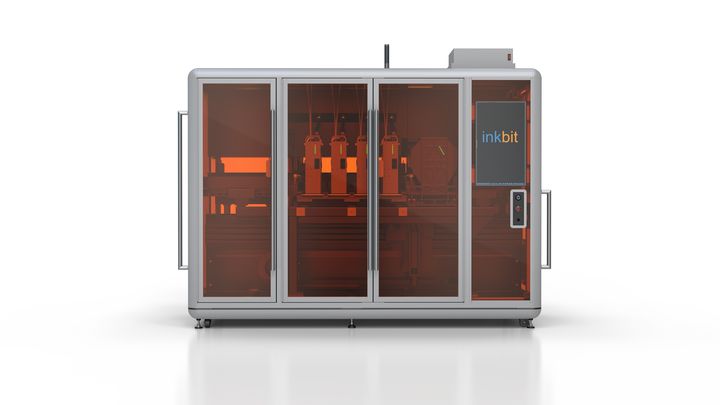
Inkbit announced a partnership with the United States Air Force.
Massachusetts-based Inkbit has been developing their first product, an industrial 3D printer that goes by the name “Vista”. The key feature of the system is its innovative VCJ 3D printing process.
I described the VCJ process in detail earlier this year when Inkbit released the first information about the process. VCJ stands for “Vision-Controlled Jetting” and, as you can probably guess, it involves a standard material jetting process. The big difference is that VCJ includes a sophisticated AI system that uses vision to monitor the quality of each and every layer as they are produced inside the Vista.
This enables a closed-loop system that ensures high-quality parts can be reliably produced. This is a highly desirable feature in a market that is filled with machines that are “graduating” from less-intensive prototyping environments that suddenly find themselves scrambling to add features to increase quality.
With the dramatically increasing interest in additive manufacturing by industry, Inkbit would seem to be in a good position: new product, excellent quality output, and more.
However, there’s also a problem: trust.
Buyers of major systems are always companies, and the managers making the decisions are held responsible for their actions. A mistake made in buying the wrong equipment could cost them their job, or be a “CLM” (Career Limiting Move).
Because of this widespread corporate phenomenon, many managers choose to take the “safe” choice when selecting equipment. They go with the familiar vendor, the manufacturer that has bundles of happy customers as examples, etc. They go with suppliers they trust.
This scenario is all-too familiar to startups attempting to sell goods to big companies. It’s frustrating, particularly when the product is actually better than that of the incumbents.
What’s needed is a breakthrough, and that seems to be what has happened to Inkbit.
The arrangement with the USAF involves US$1.7M and requires Inkbit to deliver three Inkbit Vista systems that will likely be first installed at the Texas Air National Guard. The others will be installed at other USAF bases not yet named.
Inkbit said:
“This contract, which also funds the development of technical improvements and software tools to enhance production output, builds upon work funded by DARPA (Defense Advanced Research Projects Agency) to develop Inkbit’s proprietary vision system.”
While these three machines will be Inkbit’s very first commercial shipments, it seems the company will be able to improve VCJ while it develops a customer base, thanks to the USAF contract.
The value of this contract goes well beyond the sale of three machines. Because it’s the first for the company, and to a reputable organization, they will soon have a demonstrable client experience to show skeptical prospects.
There’s nothing like getting a good word from an existing client to your sales prospects, because there is only a limited trust relationship between company and prospect at the beginning. The best way to overcome fears is by showing the prospect an actual operating system and having them speak with independent parties doing so.
This is the kind of breakthrough that startup companies seek, and Inkbit has landed one.
Via Inkbit
